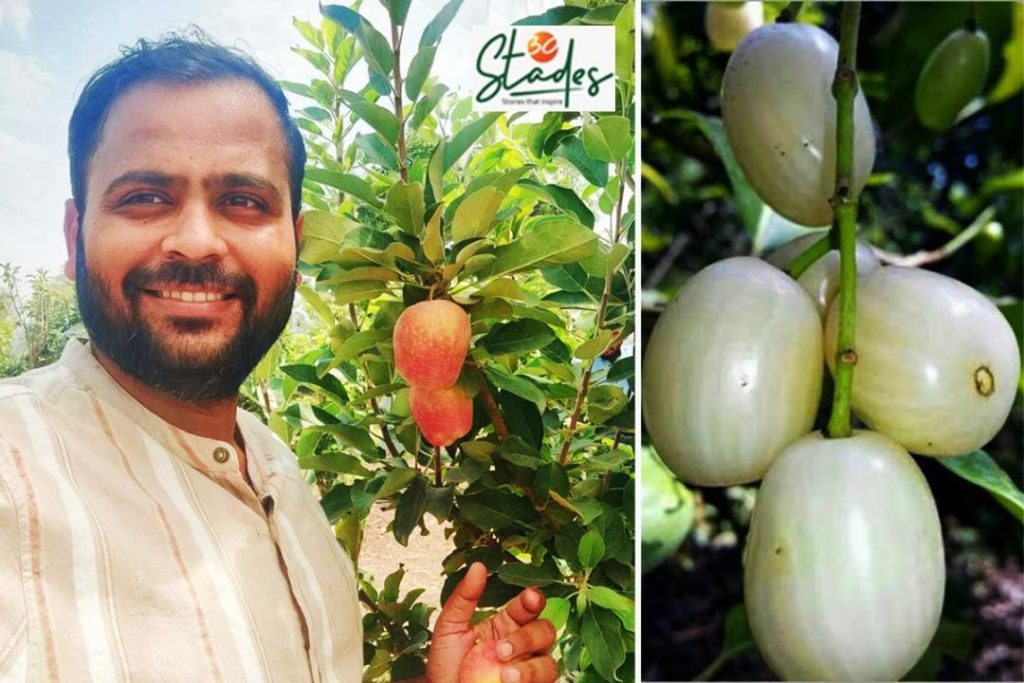
How Maharashtra Engineer Grows White Jamuns and Apples at 43°C
In a remarkable tale of entrepreneurship and innovation, Vikrant Kale, a former IT engineer from Maharashtra, has successfully cultivated white jamuns and apples in Ahmednagar, a region notorious for its scorching summer temperatures that often reach a sweltering 43 degrees Celsius. Despite the challenging climate, Kale’s farm has not only thrived but has also attracted the attention of wholesalers who are eager to buy his produce.
Kale’s journey into farming began when he decided to quit his job and pursue his long-held passion for agriculture. With a background in IT, he never thought he would be growing fruits and vegetables, but his love for the land and the thrill of exploring new possibilities drove him to take the leap.
The IT engineer turned farmer opted for a two-acre plot for apple cultivation and an additional one acre for white jamun cultivation. The choice of these particular crops was deliberate, as they are known to be relatively easy to grow and require minimal maintenance. Kale’s decision to focus on these varieties has paid off, as his trees have yielded impressive results.
In an interview, Kale revealed that each of his apple trees has produced an astonishing 18 kilograms of fruit, which is significantly higher than the average yield in the region. The secret to his success lies in the careful selection of saplings, rigorous maintenance, and the use of advanced irrigation systems that help conserve water.
The white jamuns grown on his farm are equally impressive, with each tree yielding around 10 kilograms of fruit. Kale’s farm is one of the few in the region to cultivate this variety, which is in high demand due to its unique flavor and nutritional value.
The success of Kale’s farm has not only provided him with a steady income but has also opened up new opportunities for propagation. He is now preparing saplings of apples and white jamuns to further expand his farm and introduce new varieties to the market. This not only ensures a steady supply of fresh produce but also helps to reduce dependence on external sources.
Kale’s innovative approach to farming has also encouraged other farmers in the region to adopt similar techniques. His farm has become a model for sustainable agriculture, showcasing the potential for growth and profit in even the most challenging environments.
In a region where agriculture is often seen as a labor-intensive and low-yielding profession, Kale’s success is a beacon of hope for young entrepreneurs. His story serves as a reminder that with dedication, hard work, and a willingness to take calculated risks, even the most unlikely of ventures can thrive.
The story of Vikrant Kale is a testament to the power of innovation and the importance of exploring new opportunities. His decision to leave the IT world behind and pursue his passion for farming has not only brought him financial stability but has also allowed him to give back to his community.
As climate change continues to pose a significant threat to global food security, stories like Kale’s offer a glimmer of hope. By embracing new technologies and innovative farming techniques, we can not only adapt to changing environmental conditions but also ensure a sustainable future for generations to come.
Source:






